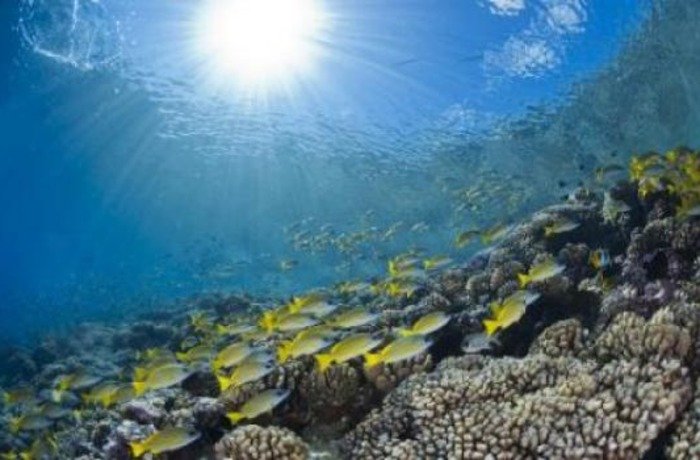Rising sea temperatures are said likely to affect all coral reefs, including those in Polynesia, in the form of annual coral bleaching events under various different emission scenarios. Credit: Thomas Vignaud
MIAMI, Feb. 26 (UPI) -- Emissions scenarios and climate models suggest carbon emissions are likely to result in more frequent and severe coral bleaching events, U.S. scientists report.
Large-scale 'mass' bleaching events on coral reefs are caused by higher-than-normal sea temperatures, which in turn make light toxic to the algae that reside within the corals, scientists including researchers at the University of Miami Rosenstiel School of Marine & Atmospheric Science said.
When the algae, which provide food for corals and give them their bright colors, die or fall to low densities, the corals can starve and eventually die, they said.
Such "bleaching" events caused a reported 16 percent loss of the world's coral reefs in 1998, the Global Coral Reef Monitoring Network said.
If carbon emissions stay on the current path, the resulting global warming will see 74 percent of the world's coral reefs experiencing coral bleaching conditions annually by 2045, the researchers said.
Reefs in northwestern Australia, Papau New Guinea, and some equatorial Pacific islands like Tokelau are most susceptible and may require urgent attention, they said.
"More so than any result to date, this [study] highlights and quantifies the potential benefits for reefs of reducing emissions in terms of reduced exposure to stressful reef temperatures," Jeffrey Maynard from the Centre de Recherches Insulaires et Observatoire de l'Environnement in Moorea, French Polynesia, said.















